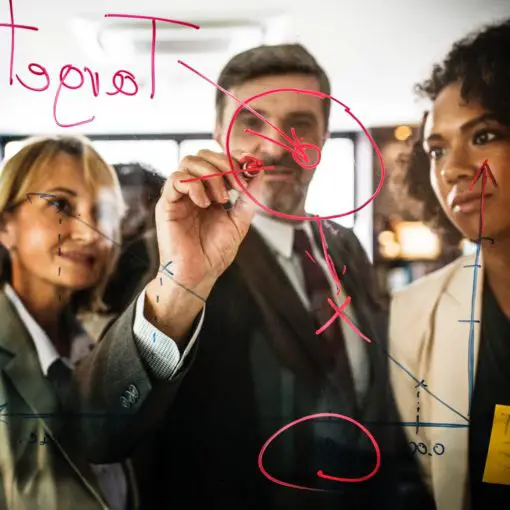Critical thinking is an essential skill that enables individuals to analyze, evaluate, and interpret information effectively. It is a cognitive process that involves analyzing a situation, identifying the problem, evaluating evidence, and making informed decisions. The psychology behind critical thinking is complex and multifaceted, involving various cognitive processes and behavioral factors.
Psychologists have long recognized the importance of critical thinking in everyday life, education, and the workplace. Critical thinking is not just about problem-solving; it is also about developing a rational and logical approach to decision-making. Individuals who possess critical thinking skills are more likely to make better decisions, solve problems more effectively, and communicate more clearly.
Research has shown that critical thinking skills can be developed through education and training. The ability to think critically is not innate; it can be learned and developed over time. By understanding the psychological processes involved in critical thinking, educators and trainers can design effective programs to help individuals develop this vital skill. This article explores the psychology behind critical thinking, examining the cognitive processes and behavioral factors that underpin this essential skill.
What is Critical Thinking?
Critical thinking is a mental process that involves analyzing, evaluating, and synthesizing information to form a reasoned judgment. It is a type of thinking that goes beyond simply accepting information at face value, and instead requires an individual to actively engage with the information, question assumptions, and consider alternative perspectives.
Defining Critical Thinking
There are many different definitions of critical thinking, but most agree that it involves a combination of cognitive skills and dispositions. According to the American Philosophical Association, critical thinking is “the process of purposeful, self-regulatory judgment that results in interpretation, analysis, evaluation, and inference, as well as explanation of the evidential, conceptual, methodological, criteriological, or contextual considerations upon which that judgment is based.”
Other definitions of critical thinking emphasize the importance of skills such as analysis, interpretation, and evaluation. For example, the Foundation for Critical Thinking defines critical thinking as “the intellectually disciplined process of actively and skillfully conceptualizing, applying, analyzing, synthesizing, and/or evaluating information gathered from, or generated by, observation, experience, reflection, reasoning, or communication.”
The Importance of Critical Thinking
Critical thinking is an essential skill in many areas of life, including education, work, and personal relationships. In the academic world, critical thinking is often emphasized as a key component of higher education, as it helps students to develop the skills necessary for success in their chosen fields.
In the workplace, critical thinking is highly valued by employers, as it enables employees to make sound decisions, solve problems, and think creatively. In personal relationships, critical thinking can help individuals to communicate effectively, resolve conflicts, and make informed decisions.
Overall, critical thinking is a valuable skill that can help individuals to navigate complex situations, make informed decisions, and lead fulfilling lives.
The Psychology of Critical Thinking
Critical thinking is a cognitive process that involves analyzing and evaluating information to make informed decisions. It is a complex mental activity that requires a combination of cognitive, motivational, and emotional factors. Understanding the psychology of critical thinking can help individuals develop their critical thinking skills and make better decisions.
Cognitive Biases
Cognitive biases are errors in thinking that can affect critical thinking. They are mental shortcuts that the brain takes to simplify complex information processing. However, these shortcuts can lead to inaccurate or incomplete information processing. For example, confirmation bias is the tendency to search for and interpret information in a way that confirms one’s preconceptions. This can lead to ignoring or dismissing information that contradicts one’s beliefs, which can hinder critical thinking.
Other cognitive biases that can affect critical thinking include the availability heuristic, which is the tendency to rely on easily accessible information, and the sunk cost fallacy, which is the tendency to continue investing in a project or decision based on past investments rather than current information.
Motivation and Emotion
Motivation and emotion play a critical role in critical thinking. Motivation can affect the effort and persistence individuals put into analyzing and evaluating information. Emotion can influence the interpretation and evaluation of information. For example, fear can lead to overestimating the likelihood of negative outcomes, which can lead to making irrational decisions.
Research has shown that individuals who are motivated to think critically are more likely to engage in critical thinking. Additionally, individuals who are skilled at regulating their emotions are better able to evaluate information objectively and make informed decisions.
Problem Solving Strategies
Effective problem-solving strategies are essential for critical thinking. One common problem-solving strategy is the scientific method, which involves formulating hypotheses, testing them through experimentation, and evaluating the results. Another problem-solving strategy is decision-making, which involves identifying the problem, generating and evaluating alternatives, and selecting the best course of action.
Other problem-solving strategies that can enhance critical thinking include brainstorming, mind mapping, and SWOT analysis. These strategies can help individuals generate and organize ideas, evaluate information, and make informed decisions.
Developing Critical Thinking Skills
Critical thinking is a skill that can be developed through practice and instruction. It involves the ability to analyze information, evaluate arguments, and make sound judgments based on evidence. Developing critical thinking skills is important for success in many areas of life, including education, work, and personal relationships.
Teaching Critical Thinking
One way to develop critical thinking skills is through instruction. Teachers can help students learn critical thinking skills by providing opportunities for them to analyze and evaluate information. This can be done through class discussions, debates, and assignments that require students to evaluate sources and arguments.
Teachers can also help students develop critical thinking skills by teaching them to ask questions. Encouraging students to ask questions about the information they are presented with can help them to think critically about the material. Teachers can also teach students to evaluate the credibility of sources and to recognize bias and fallacies in arguments.
Practicing Critical Thinking
Another way to develop critical thinking skills is through practice. Students can practice critical thinking by analyzing and evaluating information in their daily lives. This can be done by reading news articles, evaluating advertisements, and analyzing social media posts.
Students can also practice critical thinking by engaging in activities that require them to think critically. These activities can include puzzles, games, and problem-solving exercises. By engaging in these activities, students can develop their critical thinking skills and learn to apply them in real-world situations.
Overcoming Barriers to Critical Thinking
There are several barriers that can prevent individuals from thinking critically. These barriers include cognitive biases, emotional reasoning, and cultural conditioning. To overcome these barriers, individuals must be aware of them and actively work to overcome them.
One way to overcome cognitive biases is to seek out information that challenges one’s beliefs. This can help individuals to see things from different perspectives and to evaluate information more objectively. To overcome emotional reasoning, individuals must learn to separate their emotions from their judgments. This can be done by taking a step back and evaluating the evidence objectively.
Cultural conditioning can also be a barrier to critical thinking. Individuals must be aware of the cultural biases that may be influencing their thinking and work to overcome them. This can be done by seeking out diverse perspectives and engaging in activities that expose individuals to different cultures and ways of thinking.
Conclusion
Overall, critical thinking is a complex and multifaceted concept that has been studied extensively in the field of psychology. It involves a combination of cognitive skills and dispositions that enable individuals to evaluate information, identify biases and assumptions, and make sound judgments.
Through the study of critical thinking, psychologists have gained insight into the factors that contribute to effective reasoning and decision-making. They have identified a range of cognitive biases and errors that can impede critical thinking, as well as strategies for overcoming these obstacles.
While critical thinking is often seen as a desirable trait, it is not a panacea for all problems. It is important to recognize the limitations of critical thinking and to understand when it is appropriate to rely on other forms of reasoning and decision-making.
As our world becomes increasingly complex and information-rich, the ability to think critically will only become more important. By developing and honing our critical thinking skills, we can become more effective problem-solvers, decision-makers, and members of society.





